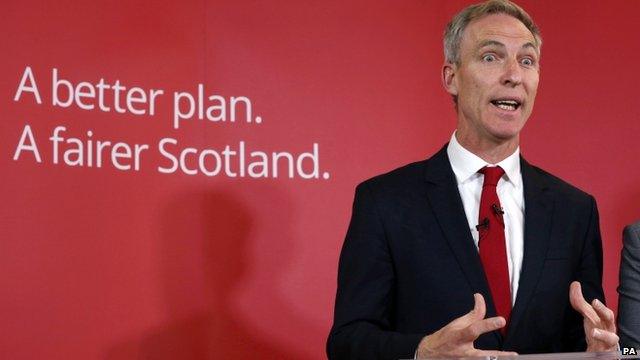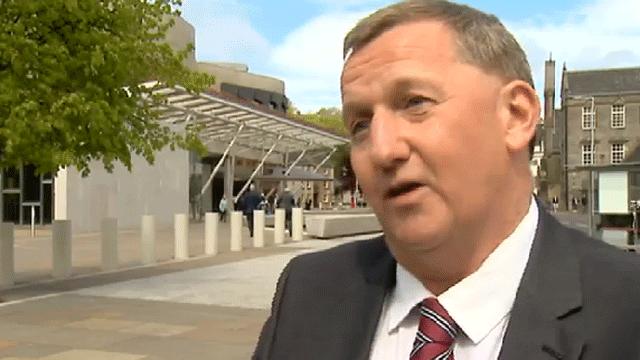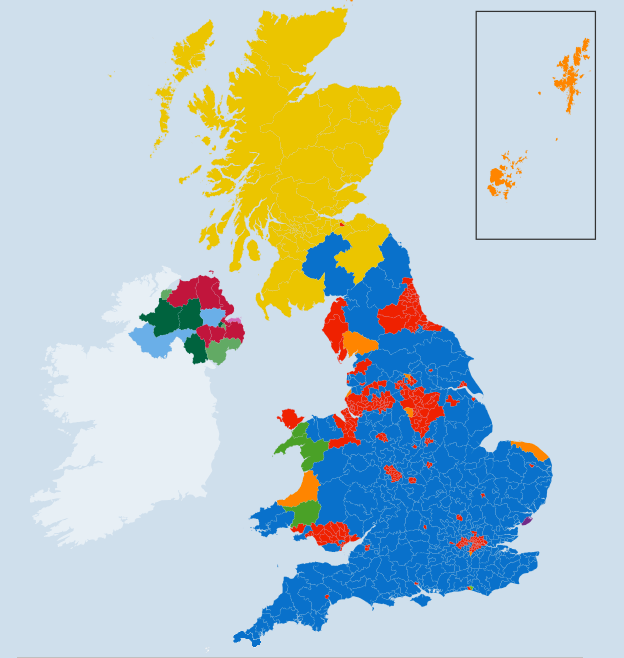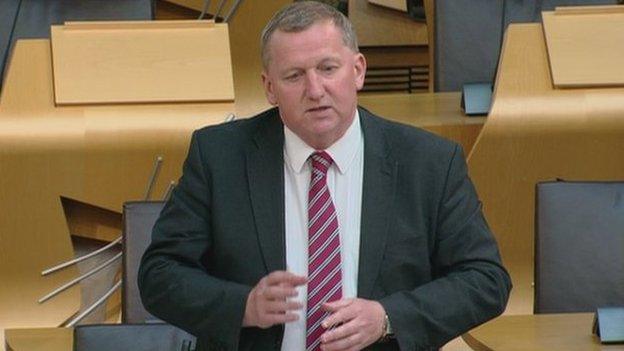Another voice joins the 'go Jim' chorus
- Published

Jim Murphy says he will continue as leader despite losing 40 Scottish seats - including his own - at last week's general election
Alex Rowley is a Holyrood new boy, entering parliament via a by-election in January last year. But he is very far from a beginner in Labour politics. He has been at various times a council leader, the party's general secretary in Scotland and a senior aide to Gordon Brown.
So, when he says that Jim Murphy should quit as Scottish Labour leader, he commands a degree of attention.
Only a degree, mind. Among Labour at Holyrood, there are as many views about the future of the party as there are group members. By contrast, the Scottish Labour group at Westminster is entirely united.
Mr Rowley is adamant that he is not revisiting the leadership contest which followed the departure of Johann Lamont. (He backed Neil Findlay.) And he praises Mr Murphy's energy and application.
Apocalyptic tone
However, he says that the leader and his aides appear too keen to secure loyalty - ahead of the necessity for a fundamental rethink. Indeed, he says he was warned against speaking out in public.
Exasperated by the warning, Mr Rowley has now done just that. He has quit Labour's front bench - as did Mr Findlay. But he has gone further, explicitly urging Mr Murphy to quit.
In an interview with me, he goes further still. He says that, if Mr Murphy continues in office, the result will be a further calamity at the Holyrood elections next year - and the "disappearance" of the party.

Alex Rowley won his seat at Holyrood in a by-election a year ago
Struck by the apocalyptic tone of that remark, I queried it. Mr Rowley noted that Labour had been reduced to but a single MP in Scotland. There was not, he implied, that much further down to go before obliteration loomed.
Some have focused, in this issue, on whether Mr Murphy can, constitutionally, remain as leader in that he no longer has a Parliamentary locus.
I do not believe that to be the question. If he continues as leader, he will be seeking entry to Holyrood. It is not beyond the wit of the Labour Party to extend the scope of their rules, should such be needed, to include aspirants, definitively.
As ever, this is a political question. How much blame can attach to Jim Murphy, given that he only had five months in post after the traumatic departure of his predecessor - who complained that the party in Scotland had been treated like a branch office?
Where now for Labour?
Sometimes snippets return to memory. I recall the senior Labour figure who noted, drolly, to me that the party in Scotland relied on UK funding and worked within a UK rule book, administered by the UK party executive. "We are not treated like a branch office," he told me, "we ARE a branch office."
Still, where now? A common argument among senior Labour folk is that the party's problems in Scotland run far deeper than individual leadership. Labour, they say, persistently ceded ground to the SNP, abrogating the role of Scotland's political voice.
Other issues arise. What about the role of Ed Miliband? Did Scottish Labour end up only representing the dispossessed and distressed, neglecting the aspirational and ambitious?
What was the party's post referendum stance? Appeal to Labour Yes voters? Then switch to entrench No voters? Alex Rowley says Mr Murphy and the leadership must take the blame for any strategic confusion.
Mr Murphy will make his decision in his own way and prompted by his own motives. One final thought, though. Is there a clamour of candidates to replace him? Dear reader, there is not.

2015 election results map

Conservatives won 331 seats and Labour 232 - followed by the SNP with 56 seats out of 59 in Scotland
- Published12 May 2015
